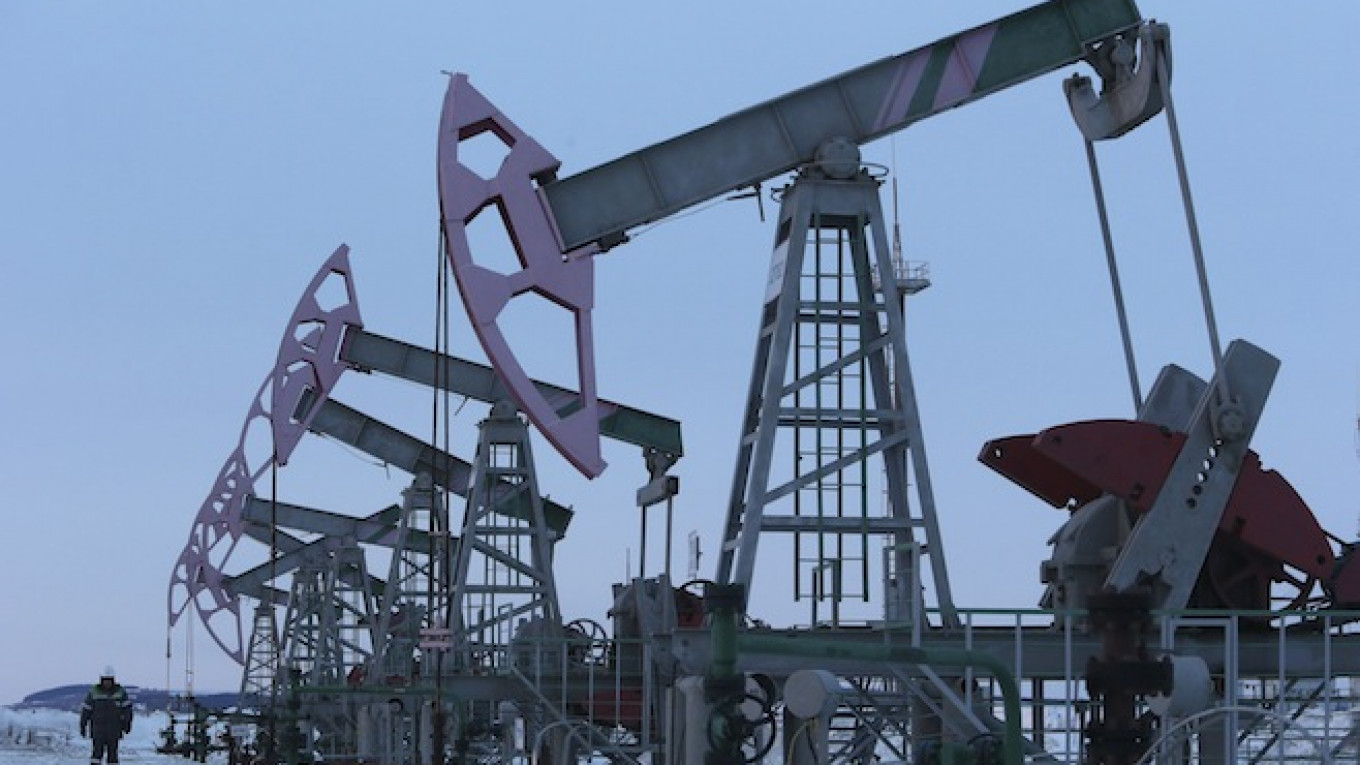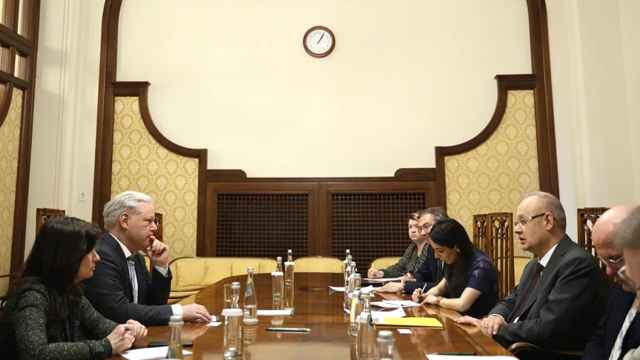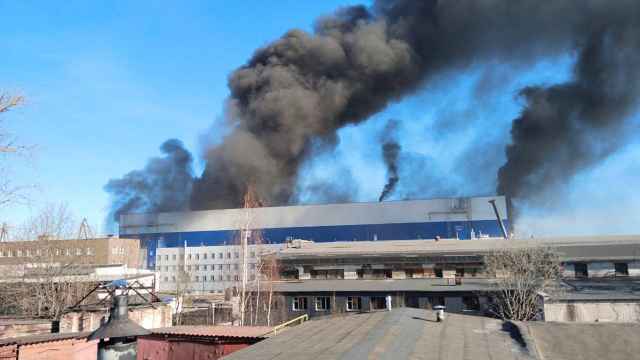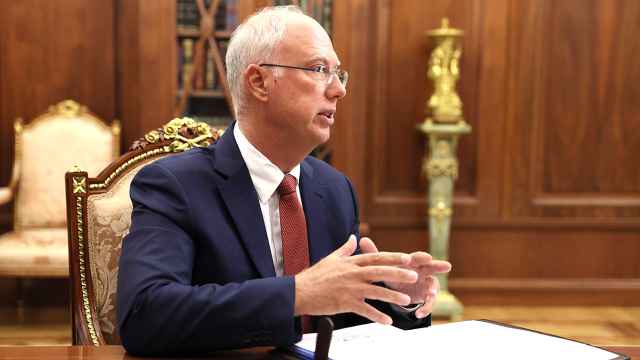The twin traumas of an economy-crippling oil price collapse and Western sanctions hobbling energy firms will not deflect Russia from keeping oil output near a record high this year, companies, officials and analysts say.
Russia will likely continue to fend off Saudi Arabia as the world's top oil producer until a predicted longer term output decline starts to take hold later this decade.
A defiant government and giant energy firms see little impact for now from the headwinds and, crunching the data with a sceptical eye, analysts agree.
Oil output hit a post-Soviet high of 10.58 million barrels per day (bpd) last year, with new fields, some in the Arctic, contributing.
So far in 2015, output is little changed at 10.66 million bpd despite sanctions over the Ukraine crisis which bar Western majors from helping Russia's largest oil firms explore for new areas and limit their ability to borrow.
Russia's Energy Ministry forecasts 2015 output at last year's levels or a decline of 0.6 percent, Interfax news agency reported.
This follows the usual practice of forecasting, to show higher volumes for the end of the year, said Valery Nesterov, an analyst with Sberbank CIB.
"Should the oil price stay in the $50-$60 per barrel range, the chances are high that oil output will stay flat on last year's level," he said. Brent was trading at $56 on Tuesday, recovering from its six-year lows of around $45 in mid-January.
Russia's largest oil firms, such as LUKoil or Surgutneftegas, said they do not plan to cut oil output this year.
Gazprom Neft, the oil arm of state gas producer Gazprom, said on Tuesday that it plans a further growth in output after a 6 percent increase last year.
Rosneft, Russia's largest oil producer, declined to comment.
In January, Rosneft showed a 4 percent drop at its largest unit, Yuganskneftegaz, among some other assets, but was helped by a rise at its newest assets such as the Uvat project or Verkhnechonsknoye field in Siberia, Sberbank CIB said.
"We see limited immediate downside risks to Russia's current production ... as greenfield developments such as Vankor, Talakan and Verkhnechonsk make up for natural production declines ... in the near terms," Bank of America Merrill Lynch said in a report.
Fall Unavoidable, But Not Now
Western sanctions target Russia's future sources of oil growth — shale, the Arctic and deep water.
ExxonMobil has postponed exploring the Kara Sea with Rosneft, which sources say will restart operations only next year.
Meeting investors in Asia on Tuesday, Gazprom said that Gazprom Neft was delaying the start or reaching peak output at some of its newest projects such as Novoportovskoye, Kuyumba, Dolginskoye or Chonskiy for three or more years, Sberbank CIB said.
All four are expected to peak later in the next decade, according to Gazprom's presentation. Their combined output would be at around 600,000 bpd if they reach their highs at once.
Gazprom Neft declined to comment on the figures.
"These delays were not a surprise, given financing restrictions on Gazprom Neft," Sberbank CIB said in a note.
Deputy Prime Minister Arkady Dvorkovich said last month that if the oil price stays at $50 per barrel for a long time "a small decline" of production may start, which he estimated at a tenth of Russia's total at the most.
Most likely, he said, the decline would come at some 300,000-400,000 bpd as some projects — which he did not name — would be put on hold.
"Heading into the end of the decade... we see Russia's production decline rates accelerating to 5 percent in the absence of Western technology," Bank of America Merrill Lynch said.
"Not long ago, the Russian Energy Ministry was forecasting tight oil production mostly out of the Bazhenov basin to reach 500,000 bpd by 2018. Those estimates now seem far-fetched."
A Message from The Moscow Times:
Dear readers,
We are facing unprecedented challenges. Russia's Prosecutor General's Office has designated The Moscow Times as an "undesirable" organization, criminalizing our work and putting our staff at risk of prosecution. This follows our earlier unjust labeling as a "foreign agent."
These actions are direct attempts to silence independent journalism in Russia. The authorities claim our work "discredits the decisions of the Russian leadership." We see things differently: we strive to provide accurate, unbiased reporting on Russia.
We, the journalists of The Moscow Times, refuse to be silenced. But to continue our work, we need your help.
Your support, no matter how small, makes a world of difference. If you can, please support us monthly starting from just $2. It's quick to set up, and every contribution makes a significant impact.
By supporting The Moscow Times, you're defending open, independent journalism in the face of repression. Thank you for standing with us.
Remind me later.






